My work focuses on connecting education, innovation, and entrepreneurship through practical, scalable learning experiences. At PUCRS and TECNOPUC, I help lead initiatives that create bridges between academic environments and the real demands of the innovation ecosystem. Since 2022, I’ve been involved in TIC em Trilhas, a national program focused on Information and Communication Technologies (ICT). As one of the executing institutions, PUCRS/TECNOPUC has contributed significantly to the program's growth. Across our local delivery, we’ve reached over 12,000 participants, with more than 4,000 certificates already issued. In 2024 alone, nine startups emerged from students who joined the program and later advanced to the TECNOPUC innovation environment. One of the key educational strategies I use is Challenge-Based Learning (CBL), aligned with my participation in the Apple Distinguished Educator community. This methodology supports learners in solving real-world problems collaboratively, while developing entrepreneurial mindsets. As a university professor, I’m also able to bring TECNOPUC’s culture of innovation directly into the classroom. This connection allows students to experience entrepreneurship not just as content, but as something they can practice, prototype, and live—whether through academic challenges or industry-driven projects. Rather than positioning entrepreneurship as a subject to study, my aim is to embed it into the learning process itself—especially for students who may not see themselves as entrepreneurs yet. Creating accessible and applied educational environments is central to that goal. This nomination represents the collective work of many people and institutions, and reflects the outcomes we’ve been able to achieve by aligning education with purpose, innovation, and inclusion.

RUNNER-UP
Entrepreneurship Educator of the Year Award
Rafael Chanin
RUNNER-UP Entrepreneurship Educator of the Year Award
Pontifical Catholic University of Rio Grande do Sul (PUCRS) and TECNOPUC - Brazil
"Empowering Entrepreneurs Through Education, Innovation, and Purpose"

Have a say and vote for this entry to win the People's Choice Award!
500 points per vote
Provide your email address and click on "vote". You will then receive an email that enables you to verify your vote by clicking on a link.
Summary
Key People
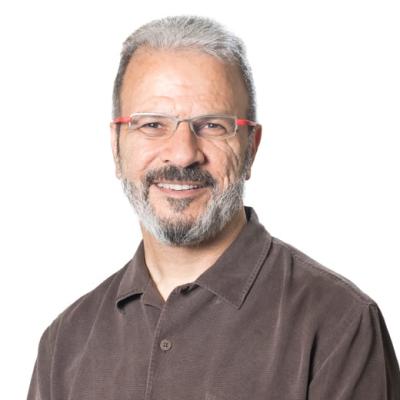
Jorge Audy
Superintendent of Innovation and Development at PUCRS and TECNOPUC
PUCRS and Tecnopuc
Images
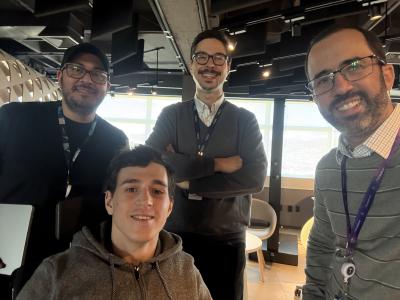
TIC em Trilhas Team with Felipe from Amores Fati (PWD institution)
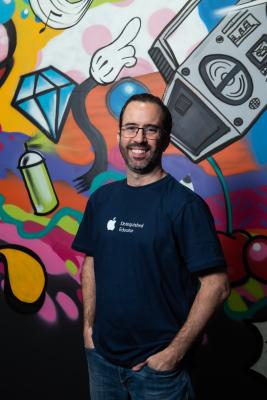
At the Apple Distinguished Education Brazilian Summit
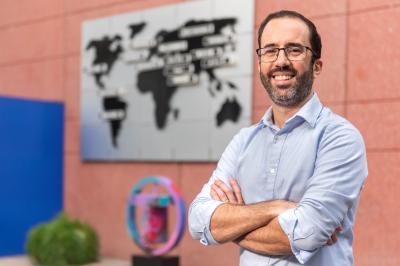
At TECNOPUC
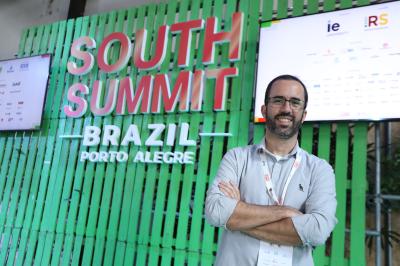
Presenting at the South Summit Brazil
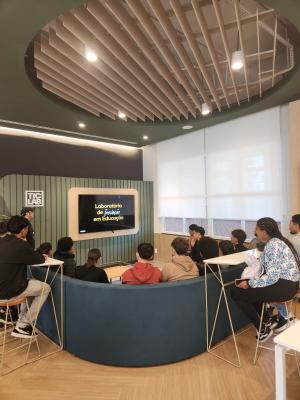
TIC and Trilhas Lab
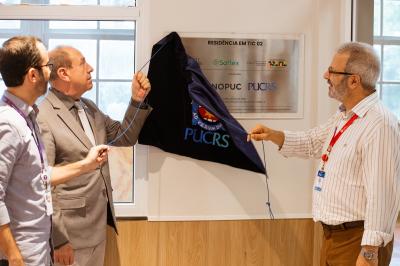
Inauguration of TIC em Trilhas LAB
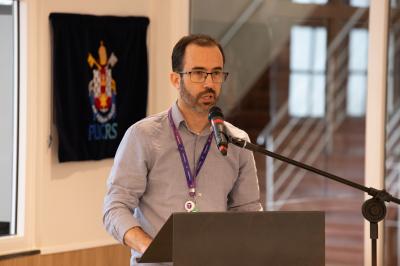
Inauguration of TIC em Trilhas LAB
IMPACT STORY
Impacting lifes
One of the most meaningful initiatives I’ve been involved in recently is a partnership between PUCRS/TECNOPUC and the Instituto Amores Fati, a Brazilian organization committed to supporting people with disabilities (PWDs) across the country. The collaboration emerged through an inspiring connection with Felipe, the institute’s founder and president.
Felipe is tetraplegic and, together with his mother, has built Amores Fati as a space of empowerment and possibility. He is currently pursuing a degree in Computer Science and also works at one of the companies located inside TECNOPUC. His story represents the type of transformation we hope to multiply through education and entrepreneurship.
With this partnership, we are working to structure a national learning program that combines the social mission of Amores Fati with the pedagogical and technological infrastructure of TIC em Trilhas. The goal is to reach 2,000 students with disabilities, offering access to high-quality training in Information and Communication Technologies (ICT), while also providing mentorship and guidance toward inclusion in the innovation ecosystem.
Although the project is still in execution, the potential for impact is clear. Felipe’s journey—navigating education, professional life, and leadership—is both a catalyst and a guide for this initiative. By building this alliance, we aim to create not just access to knowledge, but real pathways to participation and protagonism in the tech and entrepreneurship landscape for people with disabilities throughout Brazil.
LEARNINGS
Lessons learned
One of the main lessons I’ve learned working at the intersection of education, innovation, and entrepreneurship is that leadership often means creating conditions for others to lead. Especially in large-scale, multi-institutional programs like TIC em Trilhas, impact doesn’t come from central control—it comes from building systems that are adaptable, inclusive, and built on trust.
Leading in this context requires clarity of purpose but also the humility to co-create solutions. I’ve learned to value process as much as outcome, and to accept that the most meaningful changes often come from people who don’t necessarily fit traditional definitions of “entrepreneur” or “innovator”—including many students who had never imagined themselves in tech or startup environments.
My advice for others working in this space is to stay close to real stories. Metrics are important, but narratives like Felipe’s (from Instituto Amores Fati) remind us what this work is really about: expanding access, breaking barriers, and opening new paths where they didn’t previously exist.
Another lesson is to bridge environments intentionally. My dual role at PUCRS and TECNOPUC allows me to connect university learning with innovation ecosystems—an approach that has proven powerful for students and institutions alike. Education becomes more impactful when it’s aligned with real-world challenges and opportunities.
Finally, leadership in education today requires a bias toward action, even when systems are slow. Build pilots, test ideas, listen carefully, and iterate. Impact grows when we start small—but don’t stay small.
FUTURE PLANS
What's coming?
Looking ahead, my goal is to continue scaling educational models that are inclusive, applied, and connected to real entrepreneurial ecosystems. Based on the success of our local execution of TIC em Trilhas, we are now working on expanding our reach to more underserved groups—especially people with disabilities and students in remote or vulnerable communities.
One of the key priorities is to consolidate the partnership with Instituto Amores Fati and reach our target of 2,000 learners with disabilities, offering not just technical education, but real pathways into innovation environments like TECNOPUC. This project is a model for how social impact and technology education can work together in practice.
Another future step is to integrate artificial intelligence and emerging technologies more intentionally into our learning design, both as tools for delivery and as content areas. We’re currently developing new Challenge-Based Learning modules that explore the ethical, social, and entrepreneurial dimensions of AI, with the aim of preparing students not just to use these technologies, but to shape their development responsibly.
I also plan to deepen the bridge between academia and the innovation ecosystem, designing more initiatives where university students collaborate with startups and industry partners from the beginning of their learning journey. This helps students see themselves as agents of innovation, not just passive recipients of content.
The long-term vision is to help build a national network of inclusive, purpose-driven entrepreneurship education—rooted in practice, powered by partnerships, and focused on long-term social transformation.

